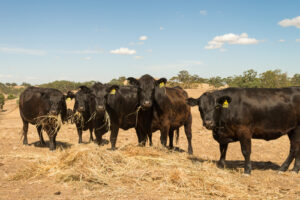
Bipartisan legislation proposed on July 20 by U.S. Sens. John Thune (R-SD) and John Hoeven (R-ND) would require the U.S. Secretary of Agriculture to allow emergency haying under the Conservation Reserve Program (CRP) during the primary nesting season.
“As South Dakota farmers and ranchers deal with ever-changing drought conditions, it’s critical that USDA has the flexibility to step in and help producers access forage for their livestock,” Sen. Thune said. “As a longtime supporter of CRP, I’m proud to lead this common-sense measure that would help producers meet their forage needs during weather-related emergencies, and I will continue to work to ensure that it is included in the final farm bill.”
The CRP Flexibility Act of 2023, S. 2412, which Sen. Thune sponsored alongside five original cosponsors, including Sen. Hoeven and U.S. Sens. Mike Rounds (R-SD) and Tina Smith (D-MN), would improve the U.S. Department of Agriculture’s (USDA’s) ability to allow for expedited emergency haying of CRP acres in response to drought and other weather-related disaster events, according to a bill summary provided by the lawmakers.
Under current statute, emergency CRP haying is not allowed until after the primary nesting season, which ends Aug. 1 in North Dakota.
If enacted, S. 2412 would create flexibility for producers by allowing emergency haying on CRP acres before Aug. 1 when certain conditions are met and in consultation with the state technical committee, the summary says.
“Our ag producers routinely face challenging weather conditions, and we continue working to improve federal disaster programs so farmers and ranchers have the tools they need to maintain their operations,” said Sen. Hoeven. “Our legislation would provide needed flexibility when producers are working to overcome severe drought, enabling them to hay CRP acres earlier and ensure they have adequate feed for livestock.”
The bill has been referred for consideration to the U.S. Senate Agriculture, Nutrition, and Forestry Committee.
“When severe droughts hit, farmers should be able to work with USDA and conservationists on a way to access reserve land for haying and grazing,” Sen. Smith added. “This will lessen the impact of severe weather on the farm economy and help our farmers get through increasingly common bouts of extreme weather.”



